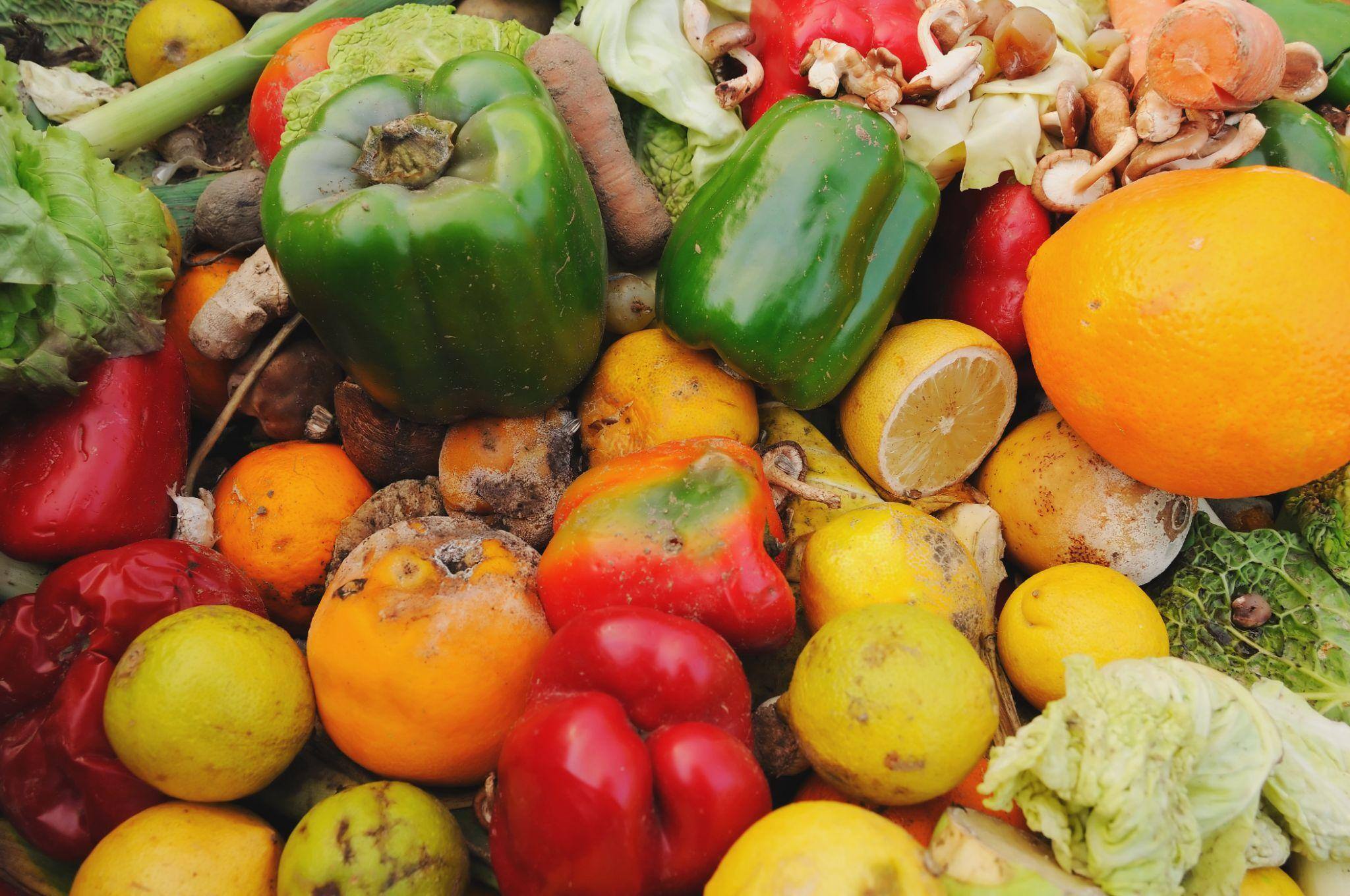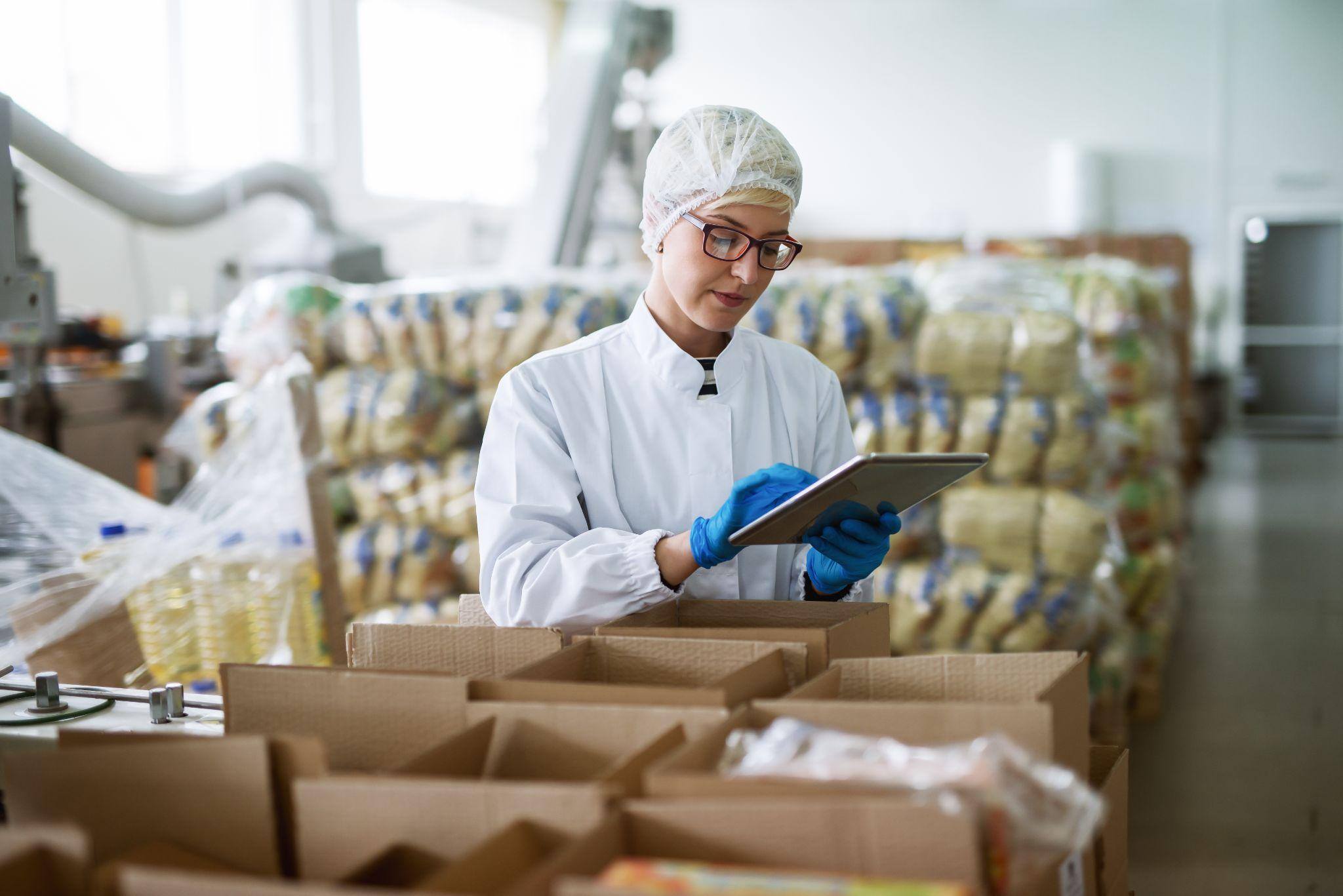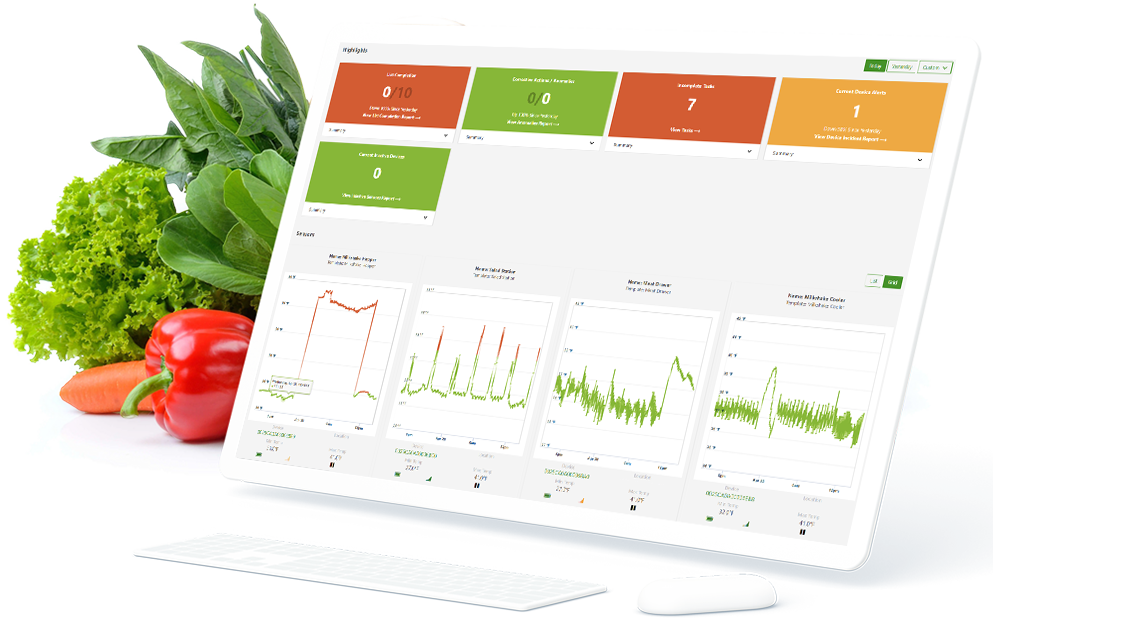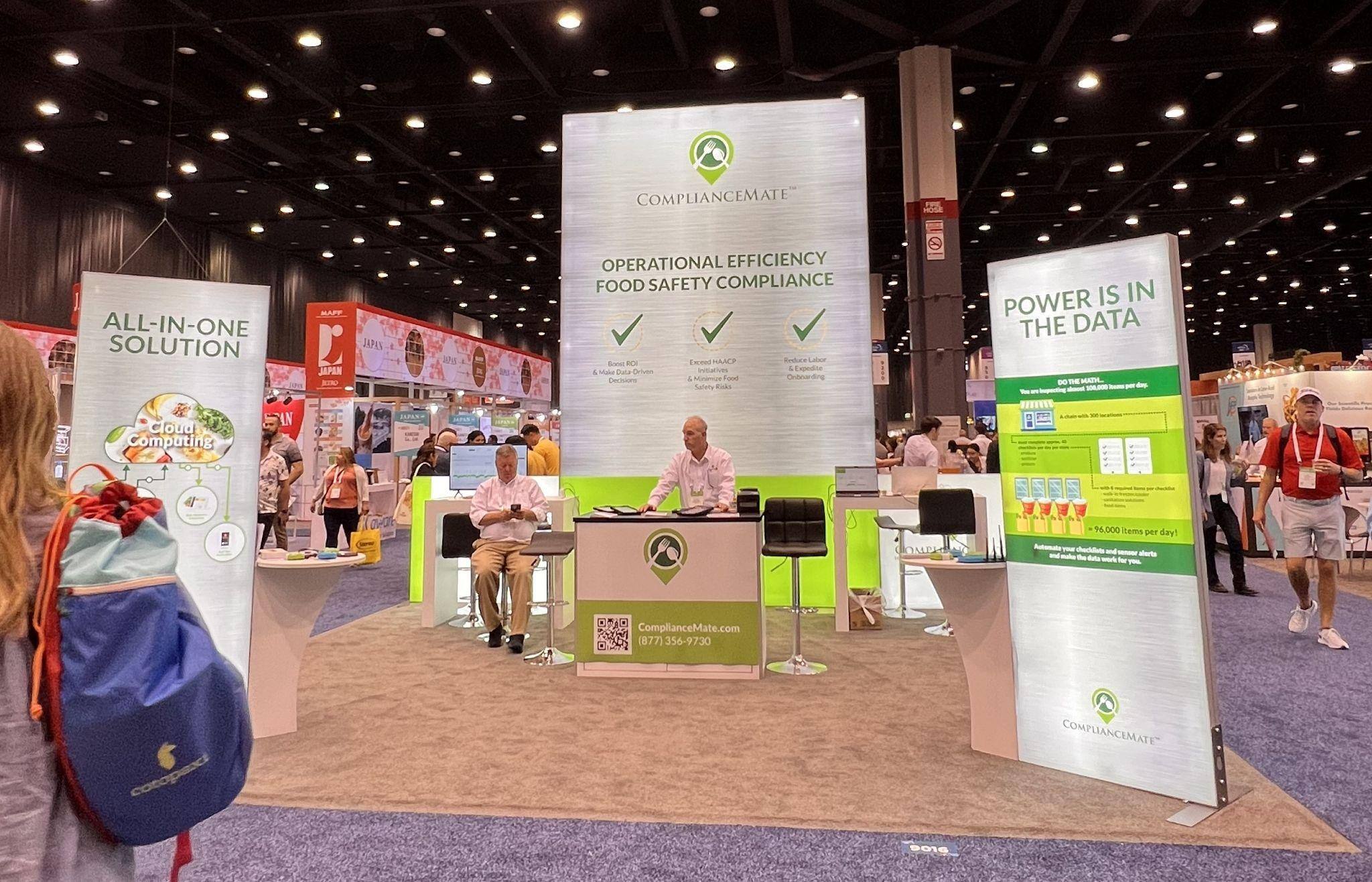
Commercial food waste is a significant global issue that impacts both the environment and economic efficiency.
Each year, the commercial sector, including restaurants, retail stores, and other businesses, discards millions of tons of food. This waste represents not only a substantial financial loss but also a considerable misuse of environmental resources such as water, land, and energy.
Artificial intelligence (AI) offers promising solutions to these challenges. By incorporating AI into their operational strategies, businesses can significantly reduce waste, boost efficiency, and support environmental sustainability.
Below, we’ll dive into how AI is poised to transform the prevention of food waste across various industries, signaling a hopeful shift towards a more efficient and eco-friendly commercial landscape.
What Is Commercial Food Waste?
Commercial food waste refers to food discarded from businesses involved in the production, distribution, and sale of food products, rather than from individual households. This waste occurs at multiple points in the commercial food lifecycle—from farms and factories to cafeterias and fine dining restaurants.
Key contributors to this waste include overproduction, spoilage due to improper storage, unsold items from inaccurate demand forecasting, and the disposal of perfectly edible food due to strict aesthetic standards.
The ramifications are substantial, impacting business profitability and leading to significant environmental consequences through resource wastage and increased greenhouse gas emissions.
Industry-Specific Food Waste Challenges

Different industries face distinct challenges when it comes to managing and reducing food waste. Each sector, from restaurants to retail, encounters unique issues that contribute significantly to overall food waste. Understanding these specific challenges is essential for developing targeted solutions that effectively address the root causes of waste.
1. Restaurants and Foodservice
In the restaurant and broader foodservice industry, food waste arises from several operational challenges. Key among these are overordering and spoilage, which are often the result of inaccurate demand forecasting. Restaurants may order more ingredients than needed, anticipating higher customer turnout that doesn’t materialize, leading to excess food that spoils before it can be used.
Additionally, oversized portions commonly result in uneaten food, which is discarded. The unpredictability of customer demand further complicates waste management, as daily footfall and food preferences can vary significantly, making it difficult for establishments to plan accurately.
2. Retail and Supermarkets
Supermarkets and retail stores face their own set of challenges that contribute to food waste. Overstocking is a prevalent issue, driven by the desire to keep shelves full and appealing to consumers, which often leads to significant quantities of perishable goods expiring before they are sold. Damage during handling and transportation also contributes to waste, as bruised or damaged goods are often deemed unsellable.
Additionally, strict cosmetic standards for fruits and vegetables lead to the rejection of large amounts of perfectly edible produce simply because they do not meet aesthetic criteria. This issue is compounded by the inherent perishability of many products stocked by retailers, which necessitates precise inventory management to avoid spoilage.
3. Catering and Events
The catering and events sector encounters unique food waste challenges primarily due to the variability in guest numbers and the scale of food preparation required. Estimating the correct amount of food needed for events is notoriously difficult, and fluctuations in attendance often result in either significant food surplus or shortages. Large-scale food preparation for events also means that any slight overestimation in per-person food needs can lead to large amounts of waste.
Additionally, the nature of events often demands diverse menu options, increasing the complexity of predicting which dishes will be popular and in what quantities, thereby complicating efforts to minimize waste.
AI and Food Waste Management Across Industries

As industries grapple with the specific challenges of food waste outlined above, AI offers a suite of solutions that can be tailored to meet these diverse needs. By harnessing the power of AI food waste management, businesses can optimize operations, reduce waste, and enhance sustainability. Let’s explore the key AI-driven innovations that are transforming waste management practices across various sectors.
Predictive Analytics
Predictive analytics harnesses AI to analyze past consumption data and predict future demand with greater accuracy. This technology is crucial for adjusting procurement and production schedules to real-time demand, thereby minimizing overproduction—one of the primary sources of food waste.
- Forecasting Demand: AI models predict customer turnout and preference trends, enabling businesses to prepare just enough food to meet anticipated demand without significant leftovers.
- Supply Chain Adjustments: These tools can forecast disruptions or shifts in supply and demand, allowing companies to recalibrate their logistics and inventory needs proactively.
Automated Inventory Management
Automated inventory management systems use AI to track stock levels, monitor expiration dates, and optimize order quantities. This technology ensures that businesses maintain an efficient inventory flow, reducing the incidence of spoilage and overstocking.
- Real-Time Inventory Updates: AI provides continuous monitoring and reporting on stock status, prompting timely actions to manage perishable goods effectively.
- Enhanced Ordering Systems: By accurately predicting future needs, AI helps in placing precise orders, ensuring that only necessary quantities are stocked.
Dynamic Pricing
Dynamic pricing models utilize AI to adjust prices in real time based on various factors such as product shelf life, current demand, and stock levels. This approach helps in moving products that are close to their expiration faster, thus reducing waste.
- Price Optimization for Perishables: As products near their expiration, AI can reduce prices dynamically to encourage their purchase.
- Targeted Promotions: AI identifies surplus stock and automatically initiates promotions or discounts to clear out inventory before it goes to waste.
Waste Tracking and Data Analytics
AI-driven waste tracking systems provide comprehensive insights into waste generation patterns, enabling businesses to pinpoint waste hotspots and implement targeted waste reduction strategies.
- Waste Audit Tools: These tools collect and analyze waste data, offering actionable insights for reducing waste at the source.
- Operational Recommendations: Based on waste tracking data, AI can suggest operational improvements or changes that effectively reduce waste output.
Operational Efficiency Through Automation
Robotics and automated processes in food preparation and handling are optimized by AI to use raw materials more efficiently, thereby minimizing waste. This is particularly valuable in manufacturing and processing environments.
- Precision Processing: Automated systems ensure precise cutting and handling of ingredients, which reduces waste during food preparation.
- Quality Control Systems: AI-driven quality checks identify and sort out sub-par products early in the supply chain, preventing the further expenditure of resources on products that cannot be sold.
Challenges and Barriers to AI Implementation
While AI food waste management presents innovative solutions for minimizing food waste across various industries, several challenges and barriers can impede its successful implementation.
In medical settings, for instance, the use of AI must navigate strict regulations such as HIPAA, which can complicate the integration of new technologies due to concerns over patient privacy and data security.
Similarly, other industries may face technical hurdles when adopting AI for food waste, such as the high initial costs associated with deploying AI systems and the need for substantial data inputs to train AI models effectively.
There is also the challenge of technological adaptation, as businesses must update their infrastructure and train staff to utilize new AI tools properly. Additionally, the effectiveness of food waste AI can be limited by the quality of the data available; poor data quality can lead to inaccurate predictions and inefficiencies, undermining the goal of reducing waste.
These obstacles highlight the need for careful planning, ongoing training, and potentially significant initial investment to fully leverage food waste AI.
Safety Meets Waste Management with ComplianceMate

As businesses work to solve the complex issue of food waste, ComplianceMate stands out by enhancing waste management practices with effective technology solutions.
Here’s how ComplianceMate’s food waste technology can help your organization tackle food waste while improving food safety protocols:
- Real-Time Monitoring
Features like LoRaWAN temperature sensors alert you instantly if food storage conditions deviate from safe parameters, reducing spoilage and waste. - Digital Workflow Integration
Facilitates consistent adherence to food safety standards through customizable digital checklists, effectively minimizing food waste by maintaining strict quality control.
- Time Efficiency
Automates manual food temperature checks with real-time alerts, freeing up staff to focus more on food waste prevention initiatives. - Regulatory Compliance
Ensures adherence to HIPAA and other regulations, providing peace of mind for healthcare and other regulated industries.
ComplianceMate’s user-friendly platform is adaptable to fit the unique requirements of various sectors, including retail, hospitality, education, healthcare, restaurants, and cafeterias, ensuring you have the most effective tools tailored to your specific needs.
Discover how ComplianceMate’s innovative food waste solutions can revolutionize your operations by scheduling a customized demonstration today. Experience first-hand the significant cost savings and sustainability improvements our technology offers, and see how you can transform your bottom line while addressing food waste with cutting-edge technology.


